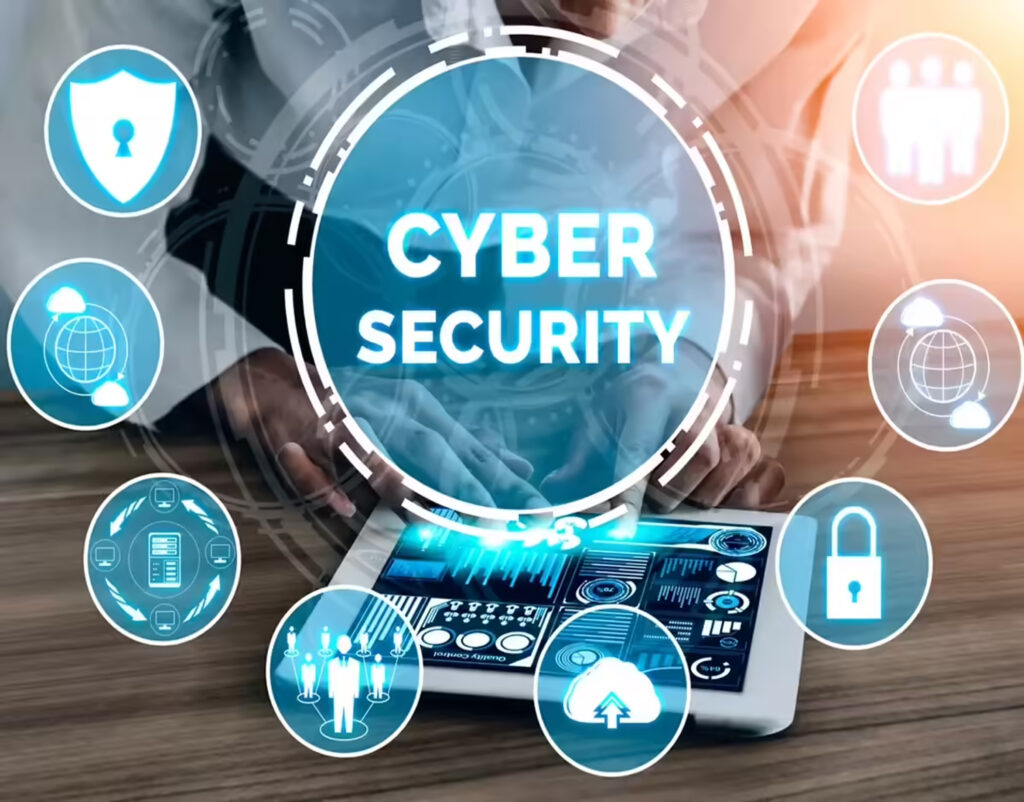In today’s hyperconnected world, the internet has become the backbone of modern life. Businesses, governments, and individuals rely heavily on digital platforms to communicate, transact, and innovate. But as our digital presence grows, so do the risks. Cyberattacks, data breaches, and ransomware incidents are no longer rare—they’re daily threats that can cripple organizations and compromise millions of lives. This is where cybersecurity services step in: acting as the shield that protects our data, networks, and systems from malicious actors.
Cybersecurity is no longer optional—it’s essential. From multinational corporations to small businesses and individual users, everyone has a digital footprint worth protecting.
What Are Cybersecurity Services?
Cybersecurity services encompass the strategies, tools, and practices designed to defend digital systems from cyber threats. These services include both proactive measures (like monitoring and prevention) and reactive responses (like incident recovery).
Some of the most common cybersecurity services include:
- Network Security – Protecting internal and external communication channels from unauthorized access or attacks.
- Endpoint Security – Securing devices like laptops, mobile phones, and IoT gadgets.
- Cloud Security – Safeguarding data and applications stored on cloud platforms.
- Identity & Access Management (IAM) – Ensuring that only authorized users can access sensitive information.
- Threat Intelligence & Monitoring – Detecting suspicious activities before they escalate.
- Incident Response – Rapid action taken to contain, mitigate, and recover from cyberattacks.
- Compliance & Risk Management – Helping organizations meet regulations like GDPR, HIPAA, or ISO standards.
These services can be provided by in-house IT teams, managed security service providers (MSSPs), or specialized cybersecurity firms.
Why Cybersecurity Matters in the Digital Age
1. Rising Cyber Threats
Cybercriminals are becoming more sophisticated every year. From phishing scams and ransomware to state-sponsored cyber warfare, the threat landscape is constantly evolving. In 2023 alone, global ransomware damages were estimated in the billions of dollars.
2. Protecting Sensitive Data
Organizations handle vast amounts of sensitive data—customer records, financial transactions, intellectual property. A single breach can result in financial losses, reputational damage, and legal penalties.
3. Business Continuity
Cyberattacks can paralyze operations. For example, a ransomware attack can lock an entire company out of its systems until a ransom is paid. Cybersecurity ensures minimal downtime and faster recovery.
4. Compliance & Legal Obligations
Governments worldwide are enforcing stricter data protection regulations. Businesses that fail to comply not only risk fines but also lose the trust of their customers.
5. National Security
On a larger scale, cybersecurity protects critical infrastructure—like power grids, healthcare systems, and financial institutions—from cyber warfare and terrorism.

Key Cybersecurity Services in Action
Managed Security Services (MSS)
Outsourcing cybersecurity to an MSSP allows organizations to benefit from 24/7 monitoring, threat detection, and incident response without maintaining a large in-house team.
Penetration Testing & Ethical Hacking
Professional ethical hackers simulate real-world attacks to identify system vulnerabilities before criminals can exploit them. This proactive approach helps businesses strengthen defense.
Security Awareness Training
Human error is one of the leading causes of data breaches. Cybersecurity services often include employee training to recognize phishing emails, use strong passwords, and follow safe online practices.
Endpoint & Mobile Security
With remote work and BYOD (Bring Your Own Device) policies, endpoints are the new battlefield. Services focus on protecting laptops, smartphones, and IoT devices from intrusion.
Cloud Security
As more businesses migrate to the cloud, specialized services protect cloud-based infrastructure and data from breaches and unauthorized access.
Cybersecurity for Different Sectors
- Finance & Banking 🏦 – Protects against fraud, account takeovers, and unauthorized transactions.
- Healthcare 🏥 – Safeguards patient records and ensures compliance with HIPAA regulations.
- E-commerce & Retail 🛒 – Secures payment gateways and customer information.
- Manufacturing & Supply Chains ⚙️ – Protects smart factories and IoT-based systems from cyber sabotage.
- Government & Defense 🛡️ – Shields national security systems from cyber espionage and terrorism.
The Benefits of Cybersecurity Services
- Enhanced Protection – Multi-layered defense ensures resilience against evolving threats.
- Cost Savings – Preventing breaches is far less expensive than dealing with their aftermath.
- Reputation Management – A strong cybersecurity posture builds trust with customers and stakeholders.
- Productivity Boost – With secure systems, employees can work efficiently without disruptions.
- Peace of Mind – Knowing that experts are monitoring and defending digital assets reduces stress for business leaders and individuals alike.
Challenges in Cybersecurity
- Evolving Threat Landscape – Cybercriminals are always one step ahead, constantly innovating new attack methods.
- Talent Shortage – The world faces a shortage of skilled cybersecurity professionals, making services more expensive.
- Small Business Vulnerability – Many smaller firms wrongly assume they are not targets, leaving them exposed.
- Balancing Security & Usability – Overly strict security protocols can slow down business processes if not implemented strategically.
The Future of Cybersecurity Services
- AI & Machine Learning 🤖 – Automated threat detection will spot and neutralize risks in real time.
- Zero Trust Security Models 🔐 – “Never trust, always verify” will become the standard for access control.
- Quantum-Resistant Encryption ⚛️ – Preparing for the day when quantum computers can break current encryption standards.
- Cybersecurity-as-a-Service (CSaaS) – Affordable subscription-based services will make enterprise-grade security accessible to small and medium businesses.
- Integration with IoT & 5G Security 📡 – As billions of devices connect, cybersecurity will extend to every aspect of daily life.
Conclusion
Cybersecurity services are the unsung heroes of the digital world. They protect not just businesses but individuals, governments, and entire societies from the invisible battles fought online every day. As we embrace digital transformation, the importance of robust cybersecurity cannot be overstated.
Investing in cybersecurity services is no longer a luxury—it’s a necessity. It ensures that our data remains private, our businesses stay resilient, and our future remains secure. In a world where the next cyberattack is always around the corner, one truth stands firm: cybersecurity is the foundation of digital trust.












